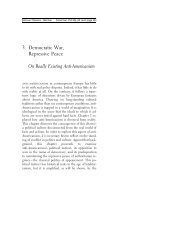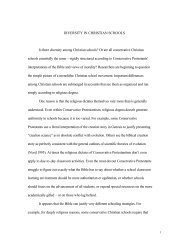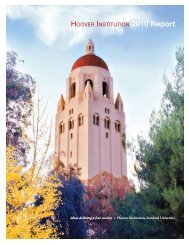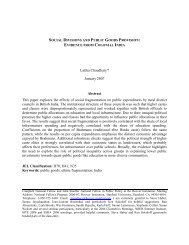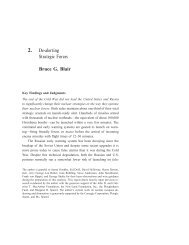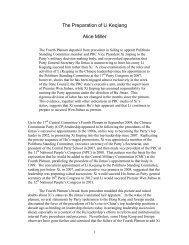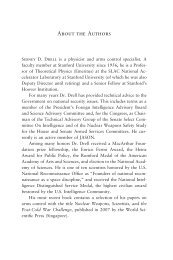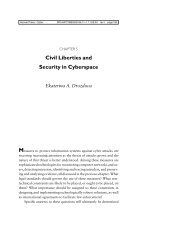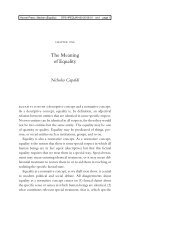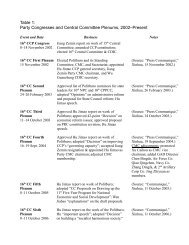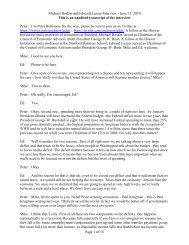A New Clandestine Service: The Case for ... - Hoover Institution
A New Clandestine Service: The Case for ... - Hoover Institution
A New Clandestine Service: The Case for ... - Hoover Institution
Create successful ePaper yourself
Turn your PDF publications into a flip-book with our unique Google optimized e-Paper software.
<strong>Hoover</strong> Press : Berkowitz/Intelligence hberai ch4 Mp_115_rev1_page 115<br />
A <strong>New</strong> <strong>Clandestine</strong> <strong>Service</strong><br />
115<br />
CIA has generally viewed consular cover as a backwater—the work<br />
is demanding, and few case officers want to exert such ef<strong>for</strong>t on<br />
behalf of the State Department when the odds of a recruitment are<br />
so small. <strong>Case</strong> officers, whatever their target, usually prefer the<br />
more prestigious, though usually even less useful, State Department<br />
political cover to “camouflage” their activities.<br />
<strong>The</strong> problems of time-on-target and association plagued agency<br />
officers in the Cold War on most difficult but conventionally accessible<br />
targets. It is imperative <strong>for</strong> outsiders to understand the depth<br />
and surreality of these long-standing problems to appreciate how<br />
defective and self-delusional the <strong>Clandestine</strong> <strong>Service</strong> has been since<br />
espionage replaced covert action as the mainstay of its ethos in the<br />
1950s. If you understand the mind-set and the routine methods<br />
during the Cold War, you will understand why Langley has so far<br />
successfully resisted pro-re<strong>for</strong>m outside pressure and soul-scorching<br />
internal reflection since 9/11. Five decades of mostly bad habits,<br />
seen inside as the approved playbook <strong>for</strong> routine espionage operations,<br />
has made the <strong>Clandestine</strong> <strong>Service</strong> nearly impervious to criticism<br />
and internally driven re<strong>for</strong>mation. Know the truth behind<br />
routine Cold War era operations—that they most often made no<br />
sense whatsoever—and you will also understand why only massive<br />
re<strong>for</strong>m has any chance of changing the debilitating practices of the<br />
agency’s Directorate of Operations. If, however, you think that the<br />
DO did a decent job during the Cold War—and this is the preferred<br />
historical starting point <strong>for</strong> the CIA, which most establishment liberals<br />
and conservatives assent to with little hesitation—then it’s<br />
possible to believe that the agency can adjust to a post-9/11 world<br />
without that much internal bloodletting and trauma. <strong>Case</strong> officers<br />
are, after all, Americans, so this theory goes, and they thus will<br />
honestly cross-examine themselves <strong>for</strong> the good of the country. But<br />
see the past accurately, and you will understand that Americans,<br />
like everybody else, can, in closed societies, continuously and effec-



